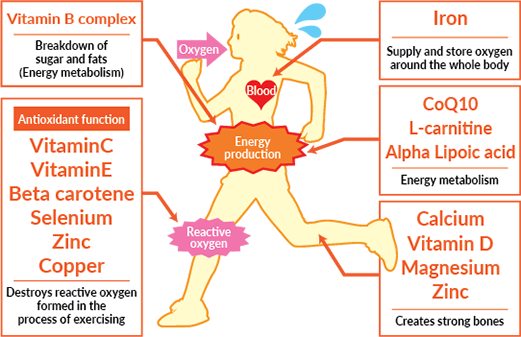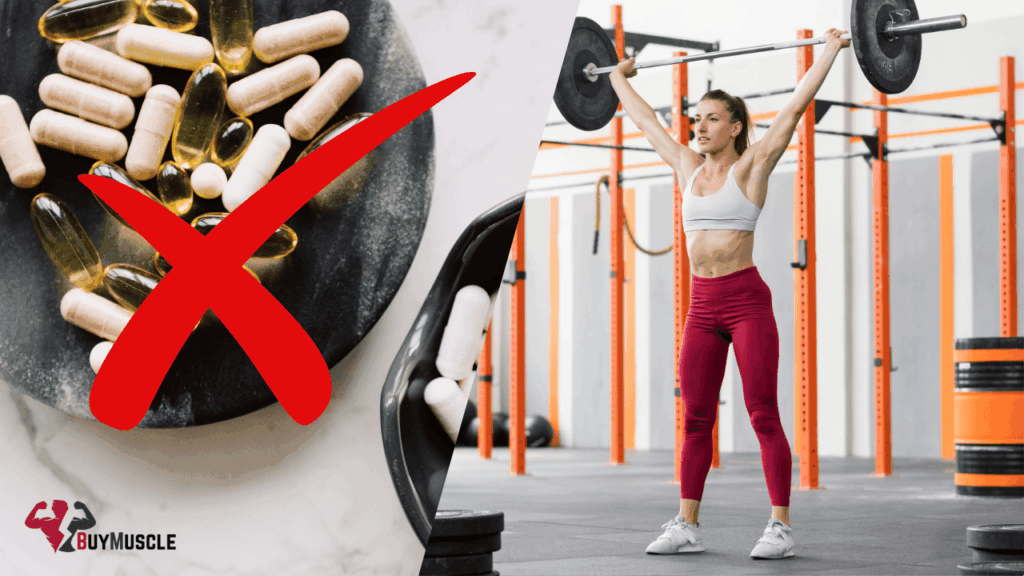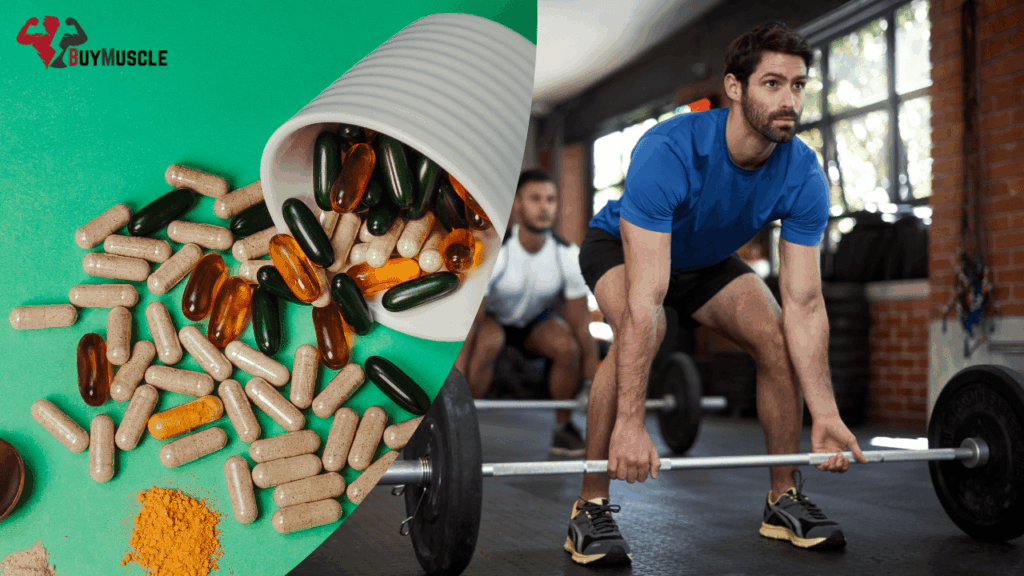To achieve muscle growth, strength, and peak performance, many lifters closely monitor their macronutrient intake. They precisely track protein, carbohydrates, and fats. However, many athletes often overlook micronutrients, which the body needs for energy production, recovery, hormone regulation, and immune support.
As intense training and dietary restrictions increase micronutrient needs, a well-chosen multivitamin can help bridge nutritional gaps.
Why Lifters Need a Quality Multivitamin
Weight training places unique stress on the body, increasing the demand for specific vitamins and minerals. Micronutrients support nearly every physiological process critical to athletic performance, from fueling energy metabolism during a workout to repairing tissue during recovery.
Restrictive diets, cutting phases, and the declining nutrient density of modern food further compound the risk of deficiencies. Lifters often fail to meet their needs for essential vitamins such as D, magnesium, or zinc, which can compromise muscle function, recovery, and hormone levels.
A targeted multivitamin for lifters supports immune defense, reduces inflammation, and helps regulate stress hormones, allowing for more consistent and higher-quality training sessions.
Essential Nutrients Lifters Should Prioritize

Vitamin D3
This fat-soluble vitamin supports testosterone production, enhances immune function, and maintains bone health. Many lifters, especially those training indoors, have insufficient levels.
Magnesium
Muscle relaxation, protein synthesis, and quality sleep require magnesium as well as nervous system regulation and stress adaptation. The most absorbable form is magnesium glycinate.
Zinc
Zinc plays a crucial role in regulating testosterone, promoting wound healing, and facilitating cellular repair. Heavy sweating and high physical activity can deplete zinc stores, making supplementation especially useful for athletes.
B Vitamins
These water-soluble nutrients fuel the body’s energy systems, regulate the nervous system, and support red blood cell production. Methylated forms, such as methylcobalamin (B12) and P-5-P (B6), are better absorbed.
Vitamin C and Vitamin E
As antioxidants, these vitamins combat oxidative stress and inflammation induced by intense lifting. They also play roles in immune defense and tissue recovery.
Calcium
Necessary for muscle contraction and bone health, calcium supports performance under load. While it is widely available in the diet, some lifters may require additional supplementation to meet their needs.
Chromium
Chromium improves insulin sensitivity and supports nutrient partitioning, helping shuttle nutrients into muscle rather than fat. It is particularly beneficial during bulking or recomposition phases.
Forms, Absorption, and What to Look For

The effectiveness of a multivitamin hinges not just on the presence of ingredients but on their bioavailability. Choosing highly absorbable forms ensures the body effectively utilizes nutrients. Below are the preferred forms for lifters:
- Methylcobalamin (B12) and methylfolate (not folic acid)
- Magnesium glycinate or citrate (not oxide)
- Zinc picolinate or citrate (not sulfate)
- Vitamin D3 (cholecalciferol, not D2)
Capsules or powders generally absorb more efficiently than hard-pressed tablets, which may pass through the digestive tract without full dissolution. Always read the label to identify the forms used and prioritize supplements that disclose exact ingredient amounts.
What to Avoid in Multivitamins for Lifters

While some multivitamins offer clinical doses and clean formulas, others are underdosed or filled with unnecessary additives. Avoiding these pitfalls is crucial to protecting both health and performance:
- Excessive dosing of fat-soluble vitamins, such as A, D, and E, or minerals like iron, may lead to toxicity or competitive absorption issues.
- Artificial colors or sweeteners that serve no nutritional purpose and may cause sensitivity in some users.
- Manufacturers use proprietary blends to withhold precise ingredient amounts, which prevents a clear evaluation of their effectiveness.
- Low-dose “one-a-day” formulas often lack sufficient quantities of key nutrients lifters need.
A high-quality multivitamin will feature transparent labeling, therapeutic dosages, and clinically validated forms.
Multivitamins and a Clean Diet
Clean eating provides an excellent foundation, but it does not always guarantee micronutrient sufficiency. Factors such as soil depletion, food transport, and modern farming practices have reduced the nutrient density of whole foods.
Moreover, hard training increases the body’s nutritional demands, while stress, poor sleep, and inflammation may impair absorption. Even with a balanced diet, lifters may fall short of ideal levels for vitamins like magnesium, zinc, or vitamin D.
A well-formulated multivitamin acts as a nutritional safety net. It supports performance, immune function, and long-term recovery, especially during periods of high physical or psychological stress.
Timing and Stacking Tips
Maximizing the benefits of a multivitamin requires attention to timing and the interaction of nutrients. Eating meals with healthy fats improves your body’s ability to absorb vitamins A, D, E, and K, which dissolve in fat rather than water. Water-soluble vitamins, including B and C, can be taken with or without food.
Take calcium and iron at different times, as your body absorbs them less efficiently when consumed together. Instead, space them several hours apart if both are part of your supplement regimen.
Lifters can effectively combine multivitamins with other supplements, such as omega-3 fatty acids to control inflammation, and green powders for additional phytonutrients. Together, these combinations offer broader micronutrient coverage for lifters focused on performance and longevity.
Top Multivitamin Brands for Lifters
While brand preference varies, several multivitamins consistently rank well among strength athletes due to their transparency, bioavailable ingredients, and third-party testing. Performance-focused options include:
- Thorne Research Basic Nutrients 2/Day: They are highly bioavailable with no unnecessary additives
- Legion Triumph: Specifically designed for athletes and includes full-spectrum support
- Animal Pak: These are for high-intensity lifters, though some may find the dosing excessive
- Transparent Labs Multivitamin: This option is free of proprietary blends and tested for purity
When selecting a product, look for third-party certifications, clinical dosing information, and a complete list of all ingredients on the label.
Frequently Asked Questions
Should I take a multivitamin if I already eat a clean diet?
Yes, even clean diets can leave nutritional gaps due to soil depletion, food processing, and the demands of intense training. A multivitamin acts as insurance for consistent nutrient intake.
What ingredients should lifters avoid in a multivitamin?
Avoid artificial colors, synthetic folic acid, low-bioavailability minerals like magnesium oxide, and proprietary blends that do not disclose exact dosages.
When is the best time to take a multivitamin for lifting?
Take your multivitamin with a meal that contains fat to enhance absorption, especially for fat-soluble vitamins like A, D, and E.







